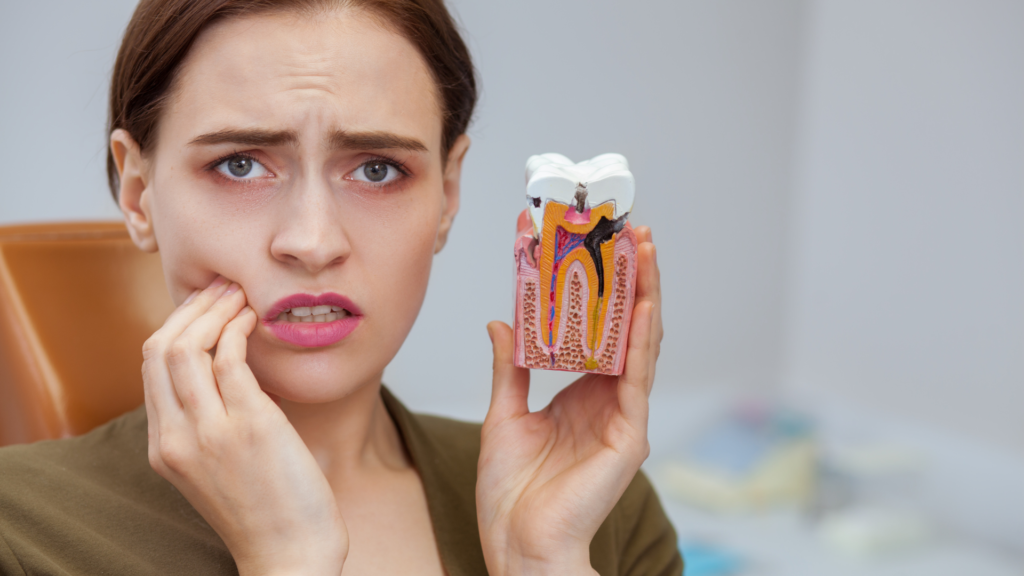Stress is an unavoidable part of modern life, and while it’s often linked to physical and mental health problems, its impact on dental health should not be overlooked. Did you know that anxiety and constant pressure can affect the health of your teeth and gums? Let’s explore how stress can influence your oral health and what steps you can take to protect your smile.
How Stress Can Affect Your Dental Health
Stress can manifest in various ways, and its effects on dental health can be more direct than you might think. Here are some ways stress can impact your mouth:
Bruxism: One of the most common consequences of stress is bruxism, the habit of clenching or grinding teeth, especially at night. This not only wears down tooth enamel but can also cause jaw pain and migraines. Have you ever noticed waking up with sore teeth or jaw pain?
Gum disease: Stress can weaken the immune system, making gums more susceptible to infections. Gingivitis, an early form of periodontal disease, can worsen during periods of high tension. Maintaining good oral hygiene is crucial, but when was the last time you scheduled a dental cleaning?
Changes in eating habits: During stressful periods, many people turn to unhealthy foods like fast food or sugary snacks, increasing the risk of cavities and other dental issues. Additionally, alcohol and tobacco consumption often increase as a way to cope with stress, which also affects oral health.
Symptoms You Shouldn’t Ignore
It’s important to watch out for certain symptoms that may indicate stress is affecting your dental health:
Tooth sensitivity: If you feel pain or discomfort when consuming hot or cold foods, it could be a sign of tooth wear from bruxism.
Bleeding gums: If you notice your gums bleeding when brushing or flossing, don’t ignore it. This could indicate periodontal disease, especially if you’ve been under a lot of stress.
Facial or jaw pain: Any type of pain in the jaw or face, especially after a period of tension, could be a sign of bruxism or muscle tension.
Strategies to Manage Stress and Protect Your Dental Health
The good news is there are several ways to manage stress while also taking care of your dental health:
Relaxation practices: Meditation, yoga, and deep breathing are excellent ways to reduce stress and benefit your oral health. Spend a few minutes each day on these practices. Have you taken time for yourself lately?
Regular dental care: Don’t neglect your dentist visits. Scheduling regular check-ups and cleanings can help catch issues before they become serious. If it’s been more than six months since your last dental visit, it’s time to make an appointment!
Exercise: Physical activity is a great stress reliever. Find a form of exercise you enjoy, whether it’s walking, swimming, or playing a sport. It will not only improve your mood but also benefit your overall health, including dental health.
Consult a Professional
If you feel stress is significantly affecting your dental health, consider speaking with a dentist or therapist. They can offer guidance on managing bruxism or other stress-related oral health issues. Additionally, some dentists may recommend mouth guards to help prevent dental damage caused by bruxism.
Stress is a challenge many of us face, but its effects on dental health are often overlooked. Being aware of how stress can impact your mouth is the first step in protecting your smile. Implement these strategies and don’t hesitate to seek professional help if needed.
Remember, taking care of your dental health is an important part of your overall well-being. Are you ready to take control of your oral health and reduce stress in your life? Start today!

